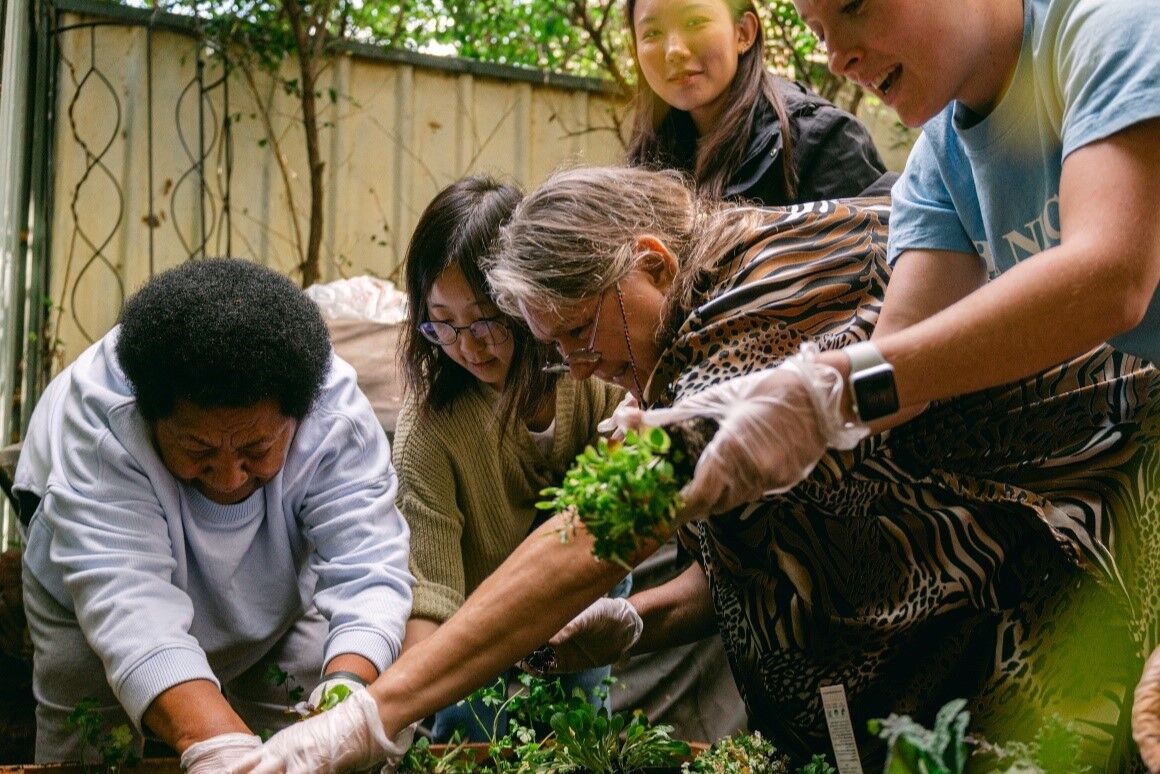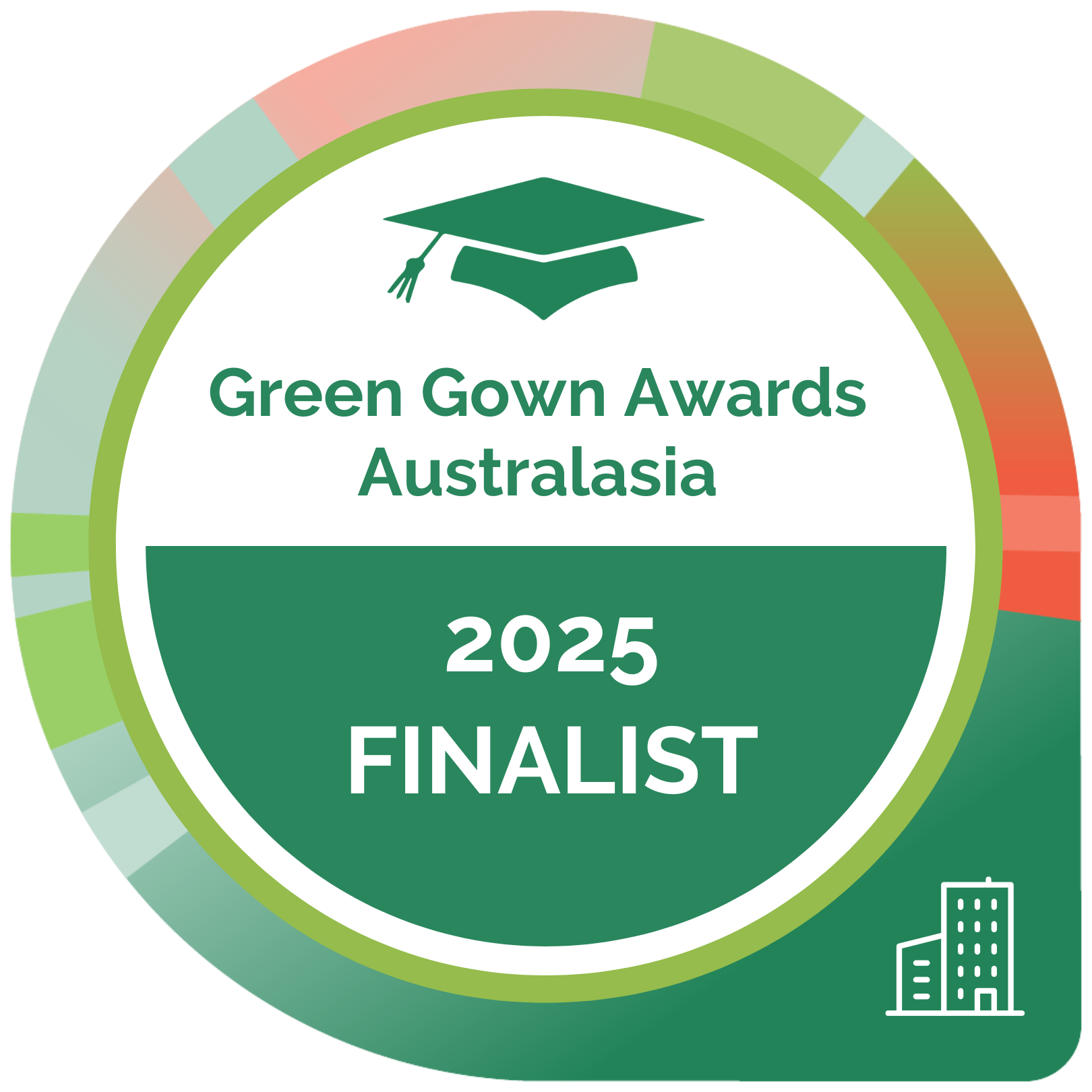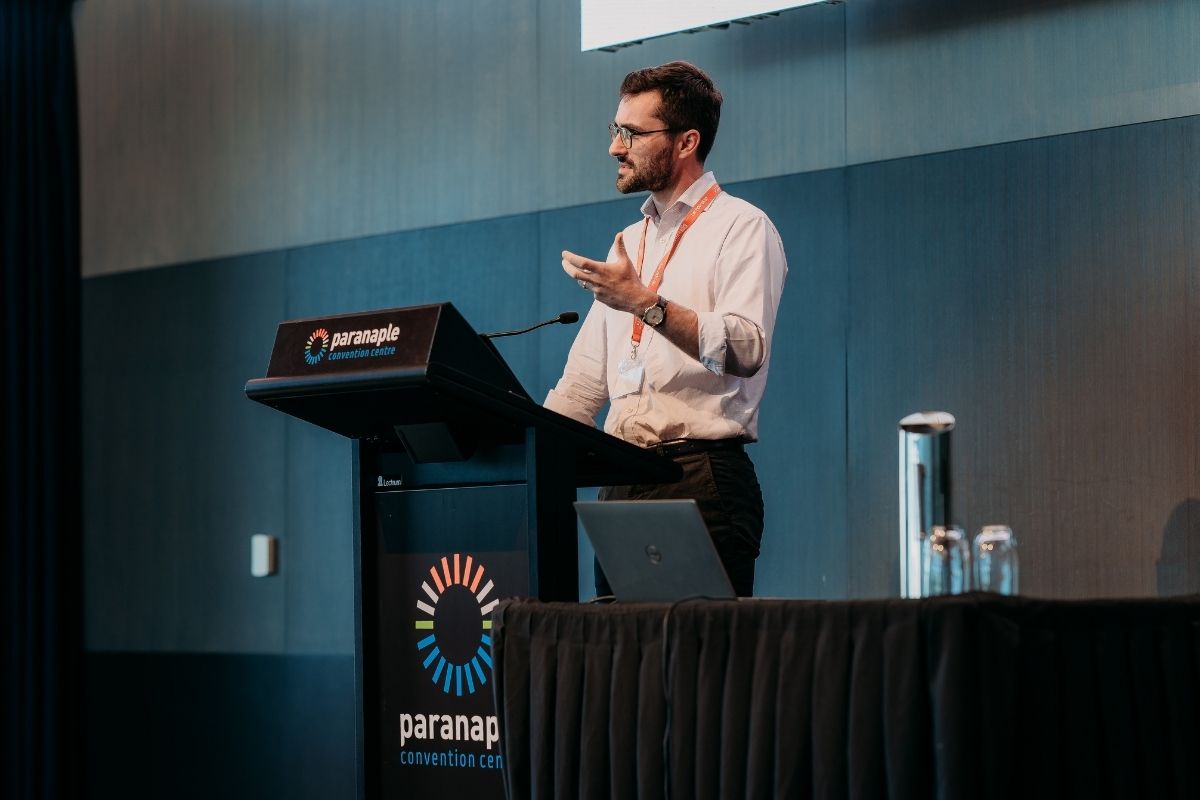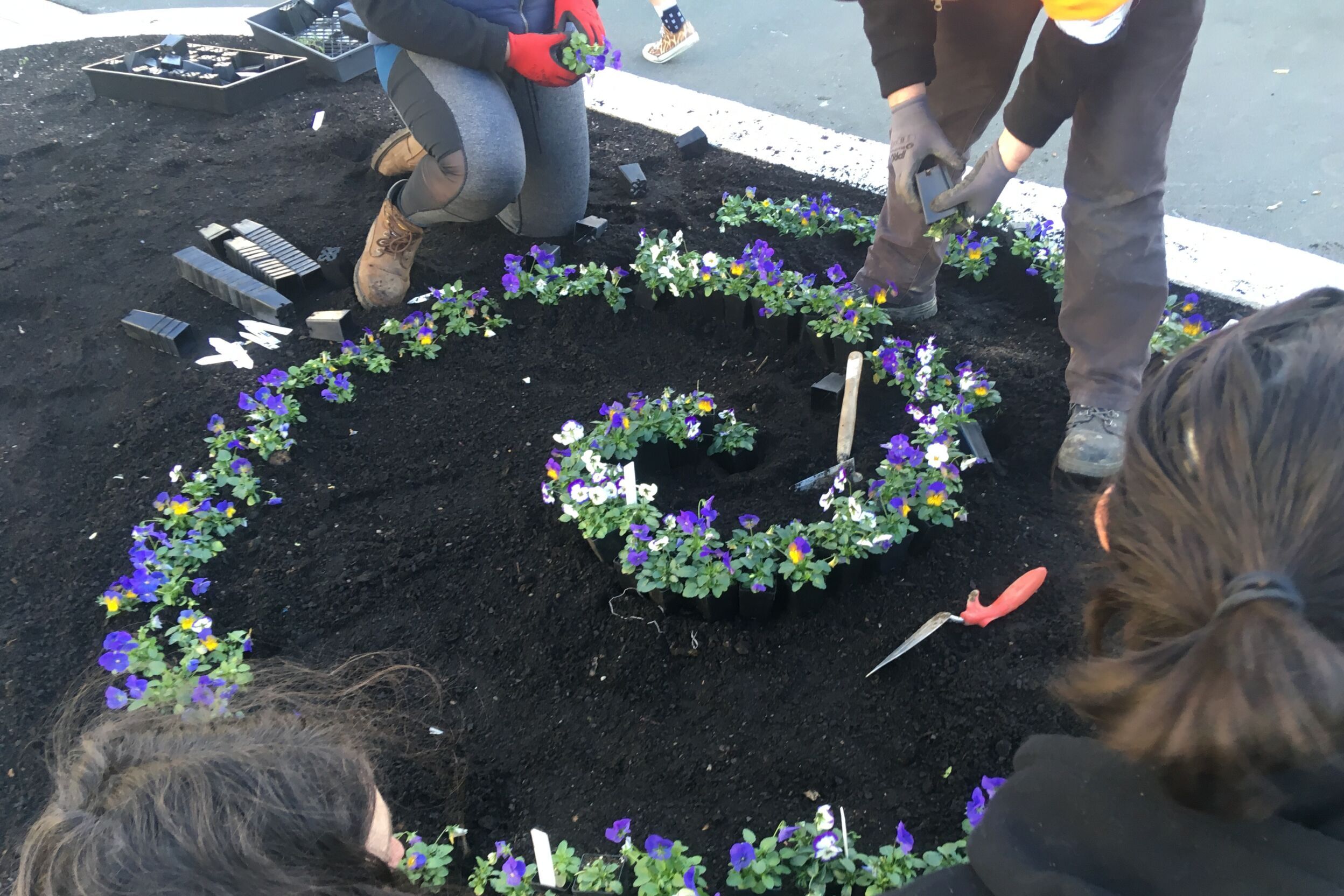Benefitting Society category
Since 1996, UTS Shopfront has provided a nationally recognised service-learning model that pairs students with not-for-profits and community organisations to deliver over 1,700 impactful projects. By embedding community-led challenges into coursework across five faculties, the program fosters civic-minded graduates while amplifying the work of under-resourced organisations. Students are supported through scaffolded learning modules on the not-for-profit sector, cultural humility, and community engagement. The program centres reciprocity, with projects designed to benefit both students and partners, enhancing the employability of graduates and strengthening community outcomes. With enduring partnerships and national recognition, UTS Shopfront continues to set a benchmark in community-engaged learning.

Environmental and Social Benefits
- The program delivers tangible value to community organisations—students’ contributions are estimated at nearly $13,000 per project, freeing up resources for frontline delivery and enhancing organisational capacity.
- From 2021–2024, 94% of partner organisations said Shopfront added value to their operations; for example, Boxhead Plastics saw a rebranding by students lead to an eightfold increase in clients and the diversion of 46 tonnes of plastic from landfill.
- More than 3,700 students in 2024 undertook Shopfront’s civic engagement and cultural humility modules, creating a ripple effect of socially conscious graduates equipped to contribute to the broader community through inclusive, respectful and values-aligned professional practice.
Leadership and Engagement
- Shopfront is Australia’s longest-running service-learning program, active across five faculties and 12 subjects, and underpinned by UTS’s social justice values and 2030 Strategy.
- The program has inspired national and international replication, hosted scholars from Curtin, ACU and Utrecht University, and been recognised with the 2024 Engagement Australia award for Outstanding Engagement for Student Learning.
- In 2024, over 2,150 students and 18 academic staff engaged in projects that were co-designed with 84 community organisations, reflecting the university’s deep integration of social impact learning across disciplines.
Significance to the Sector
- Shopfront flips traditional university–community engagement by placing community voices at the centre and co-designing projects for real-world impact—a replicable and scalable model for the sector.
- The program has influenced institutional strategies and informed broader learning design, with student-facing modules available across faculties and contributions to national WIL conferences and publications.
- Its sustained partnerships, including 12 projects with Meals on Wheels NSW since 2001, demonstrate enduring relevance and deep trust within the community sector.
Wider Societal Impact
- Projects have supported asylum seeker advocacy, First Nations cultural knowledge sharing, and programs for youth experiencing vulnerability—directly contributing to community wellbeing and capacity.
- Community partners report increased organisational confidence, clarity of purpose and enhanced communication with funders and stakeholders.
- Students frequently continue their involvement with community partners beyond coursework, becoming future changemakers in their local and professional communities.
Top 3 learnings
Supported by

Category finalists
Benefitting Society/Winner
Benefitting Society/Winner
Benefitting Society
Benefitting Society
Past winners
Benefitting Society/Winners
Benefitting Society/Winners
Diversity, Equity & Inclusion in Sustainability/Winners
Diversity, Equity & Inclusion in Sustainability/Winners
Climate Action/Winners
Climate Action/Winners
Sustainability Institution of the Year/Winners
Sustainability Institution of the Year/Winners
Creating Impact/Winners
Creating Impact/Winners
Creating Impact/Winners
Creating Impact/Winners
Top 3 learnings
Benefitting Society category
Since 1996, UTS Shopfront has provided a nationally recognised service-learning model that pairs students with not-for-profits and community organisations to deliver over 1,700 impactful projects. By embedding community-led challenges into coursework across five faculties, the program fosters civic-minded graduates while amplifying the work of under-resourced organisations. Students are supported through scaffolded learning modules on the not-for-profit sector, cultural humility, and community engagement. The program centres reciprocity, with projects designed to benefit both students and partners, enhancing the employability of graduates and strengthening community outcomes. With enduring partnerships and national recognition, UTS Shopfront continues to set a benchmark in community-engaged learning.

Environmental and Social Benefits
- The program delivers tangible value to community organisations—students’ contributions are estimated at nearly $13,000 per project, freeing up resources for frontline delivery and enhancing organisational capacity.
- From 2021–2024, 94% of partner organisations said Shopfront added value to their operations; for example, Boxhead Plastics saw a rebranding by students lead to an eightfold increase in clients and the diversion of 46 tonnes of plastic from landfill.
- More than 3,700 students in 2024 undertook Shopfront’s civic engagement and cultural humility modules, creating a ripple effect of socially conscious graduates equipped to contribute to the broader community through inclusive, respectful and values-aligned professional practice.
Leadership and Engagement
- Shopfront is Australia’s longest-running service-learning program, active across five faculties and 12 subjects, and underpinned by UTS’s social justice values and 2030 Strategy.
- The program has inspired national and international replication, hosted scholars from Curtin, ACU and Utrecht University, and been recognised with the 2024 Engagement Australia award for Outstanding Engagement for Student Learning.
- In 2024, over 2,150 students and 18 academic staff engaged in projects that were co-designed with 84 community organisations, reflecting the university’s deep integration of social impact learning across disciplines.
Significance to the Sector
- Shopfront flips traditional university–community engagement by placing community voices at the centre and co-designing projects for real-world impact—a replicable and scalable model for the sector.
- The program has influenced institutional strategies and informed broader learning design, with student-facing modules available across faculties and contributions to national WIL conferences and publications.
- Its sustained partnerships, including 12 projects with Meals on Wheels NSW since 2001, demonstrate enduring relevance and deep trust within the community sector.
Wider Societal Impact
- Projects have supported asylum seeker advocacy, First Nations cultural knowledge sharing, and programs for youth experiencing vulnerability—directly contributing to community wellbeing and capacity.
- Community partners report increased organisational confidence, clarity of purpose and enhanced communication with funders and stakeholders.
- Students frequently continue their involvement with community partners beyond coursework, becoming future changemakers in their local and professional communities.
Supported by

Related finalists
Benefitting Society/Winner
Benefitting Society/Winner
Benefitting Society
Benefitting Society
Other finalists
Climate Action

Driving Towards Tomorrow’s Campus with Vehicle-to-Grid EV Technology
As part of Flinders University’s drive to innovate and become a leader in climate action, the University launched its Vehicle-to-Grid (V2G) initiative. This involved installing and maintaining 20x V2G and smart chargers for its growing electric vehicle fleet. Leveraging 100% renewable energy generated by ENGIE’s Willogoleche Wind Farm and Flinders University’s solar power systems, this enables the storage of renewable energy in EV batteries to be discharged on campus during peak demand periods. Hence, allows for these EV fleets to operate as a Virtual Power Plant (VPP) to deliver peak demand management and optimization of behind-the-meter generation.
Overall, this initiative demonstrates the reliability and scalability of bi-directional and uni-directional smart-charging systems for EVs in reducing GHG emissions while facilitating teaching, research, and innovation opportunities. Moreover, it exemplifies a sustainable and innovative solution to scale energy storage technology and increase renewables.
Sustainability Champion – Staff/Winners

Brandan Espe
Environmental Officer / Acting Grounds Supervisor
Brandan has brought over 50 federally listed Endangered species of plant into the James Cook University living collection, many of which have never been cultivated and are found in no other collection in the world.
Of these, over half have been sustainably wild collected, inclusive of field and clone data, so they can be used for ongoing conservation, research and teaching, the remaining being sourced from private and partner organisations through favours of service or trades.
He personally funded the project from 2019-2022, until funding was awarded for the program due to its success, with the program now being engrained into the Universities landscapes for ongoing management should he leave JCU, creating a threatened species legacy collection.
The program has now expanded beyond this, with an additional 48 species now funded for further addition, some of which are only known from less than 5 sightings in history.
Student Engagement

Sustainability Leaders creating real impact!
La Trobe created a unique Sustainability Leaders volunteering program to increase engagement with students on campus and empower them to act against waste and promote sustainability. It included the following initiatives:
- Promoting the reusable crockery implementation,
- Increasing knowledge action of other students on campus to diversion comingled recycling and organic waste from landfill.
- Focus on waste audits and data,
- Improved signage through new waste posters for students living on campus.
- Collaboration with Cirka (our cleaning and waste partner) to create a waste wall and;
- Learning all things sustainability (net zero, biodiversity, waste, reusables, engagement)
These initiatives yielded significant results and with a reduction in waste contamination by almost 40% at the residential buildings and engagement with over 80 groups of people for the Reusable Revolution.
Creating Impact

Where knowledge meets habits: Empowering students for a sustainable tomorrow
Our online Sustainability Challenges offer participants an engaging, self-paced learning experience centered around a specific United Nations Sustainable Development Goal (UNSDG). Requiring minimal resourcing and at zero-cost to participants, we’ve created replicable, compact, scalable, and impactful learning opportunities that result in real impact.
The Challenges follow a structured process that moves participants from knowledge gain to simple action to celebration, to establish small but mighty habits relating to waste and carbon emissions. This approach recognises that knowledge alone is often insufficient to drive behaviour change, and that ease of action and celebration are crucial components in creating sustainable habits.
Sustainability Champion – Staff/Winners

Catherine (CeeJay) Donovan
Veterinary nurse – Anaesthesia
From establishing the Massey Vet School Green Team to leading impactful initiatives, my commitment to environmental sustainability has been making waves. With the help of my team, I have accomplished numerous small, yet meaningful actions, including integrating a sustainability lecture for final year vet students and implementing battery recycling alongside rechargeable battery use. Our larger projects encompass the introduction of green waste and soft plastics recycling bins, an energy audit resulting in power-saving measures, and playing a part in a successful rubbish audit. I spearheaded the ‘6 in 6’ campaign, empowering individuals with six simple steps for workplace sustainability. Through the SustainaVet social media pages I help to educate and inspire peers nationwide. As the Massey School of Veterinary Science sustainability champion, I had the privilege of speaking at the annual veterinary conference on sustainability in clinical practice. Currently I’m conducting pioneering research on responsible cat waste disposal. Together, we’re forging a greener future, one initiative at a time.
Sustainability Champion – Student

Louis Walmsley
SDG Coordinator Monash Association of Sustainability, Office Bearer Monash Student Association’s Environmental and Social Justice Department, Masters of Environment and Sustainability Student
Louis is an exceptional student sustainability leader at Monash University. His passion and dedication to sustainability have made a significant impact on the community. Louis’s values revolve around sustainability, which is evident upon meeting him. He actively participates in various sustainability groups, demonstrating his commitment to creating a more environmentally conscious society.
One of Louis’s notable involvements is with Precious Plastic Monash, where he organizes remarkable events and fosters collaboration among like-minded individuals, student groups, and staff. His contributions to the Monash Association of Sustainability have allowed him to conduct valuable research on plastic usage and climate action, resulting in positive changes within the university.
Through his work with the Monash Student Association, Louis has engaged hundreds of students in fun and interactive sustainability initiatives. He took the initiative to organize a sustainability food fair, which was one of the largest sustainability-related events held at Monash post-COVID. This accomplishment is a true testament to Louis’s hard work and creativity.
Louis is an outstanding student leader whose efforts in sustainability have had a lasting impact on Monash University and its community. His inspiring nature resonates with everyone who knows him.












